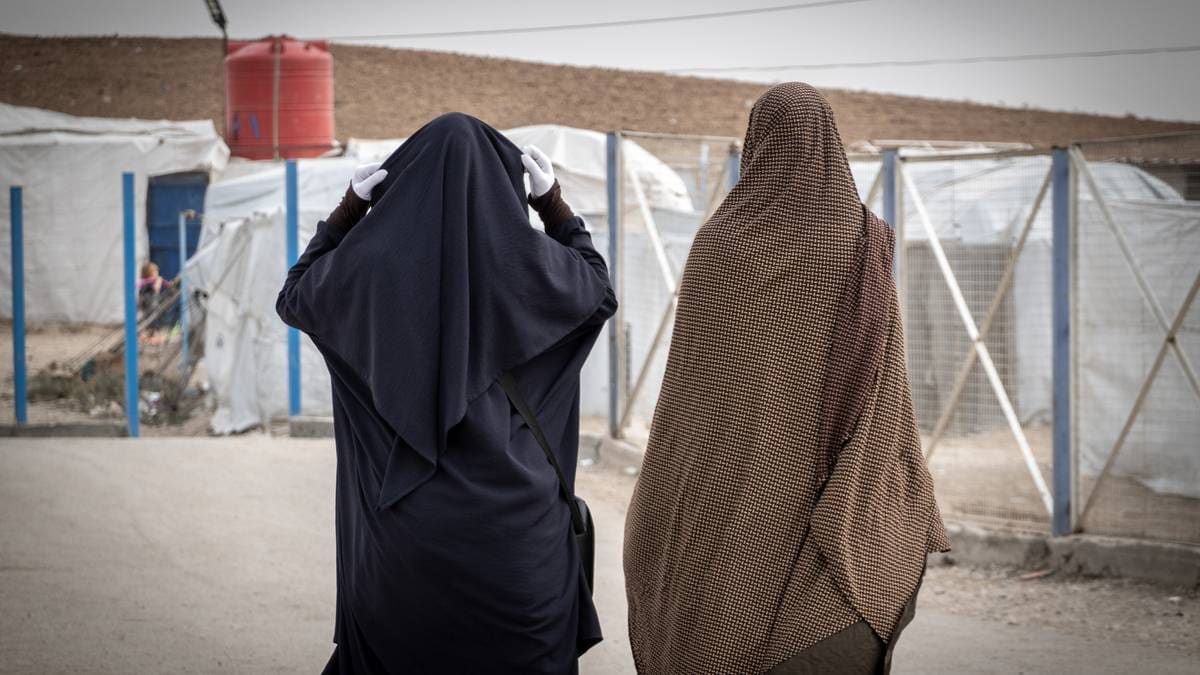In March of this year, the Norwegian authorities returned the two sisters and their three children from Syria.
By then they had spent nearly ten years in the war-torn country. The sisters, aged 25 and 29, are accused of participating in the ISIS terrorist group. They have been detained since landing at Oslo Airport.
On Thursday there was a meeting in prison for the younger sister. The woman appeared before the Oslo District Court wearing a long skirt and a red headscarf.
The 25-year-old asked to be released, but the Oslo District Court decided on Thursday afternoon to detain the two sisters for four weeks with restrictions.
Hilda Ferman Fjelsa is the defense attorney for the youngest woman.

Lawyer Hilda Ferman Fjelsa defends the younger sister accused of participating in a terrorist organization.
Photography: Muhammad Al-Ayoubi/NRK
– The most important thing for my client is to convey that she did not go to Syria to join ISIS. I left to do humanitarian work. Vjelsa told NRK that the marriage she entered into in Syria was not voluntary.
The advocate believes that the PST’s case against the woman has been weakened.
One woman can be released
PST police lawyer Terje Nedrebø Michelsen disagrees.
– In our opinion, the grounds for suspicion were somewhat strengthened by the investigation, says Michelsen to NRK.

Police lawyer Terje Nederbo Michelsen at Oslo District Court.
Photography: Muhammad Al-Ayoubi/NRK
PST requested a new four weeks in custody for both sisters. The older sister’s case was handled as office work, that is, without her appearing before the Oslo District Court.
PST believes the sisters could be tampering with evidence—that is, removing evidence or influencing witnesses if they are released.
Michelsen says PST needs at least four weeks to complete its “assigned” tasks, including further interviewing witnesses.
– Is it appropriate to release one of the accused?
– It may be possible that we could end up in a situation where we have to consider releasing someone. The reason for this is that the investigative steps were carried out afterward, due to which we believe there is a risk of tampering with evidence, Michelsen told NRK.
– Then all you have to do is sit with the father until the two accused coordinate their explanations. Then you have to choose whether you should consider solving it as one of the two.
– Is it as far-fetched as you see it?
– After the four weeks have passed, we must consider whether we should ask for another four weeks. But anything in particular beyond the two new terms is irrelevant to the current situation, Michelsen concludes.

“Organizer. Social media geek. General communicator. Bacon scholar. Proud pop culture trailblazer.”

